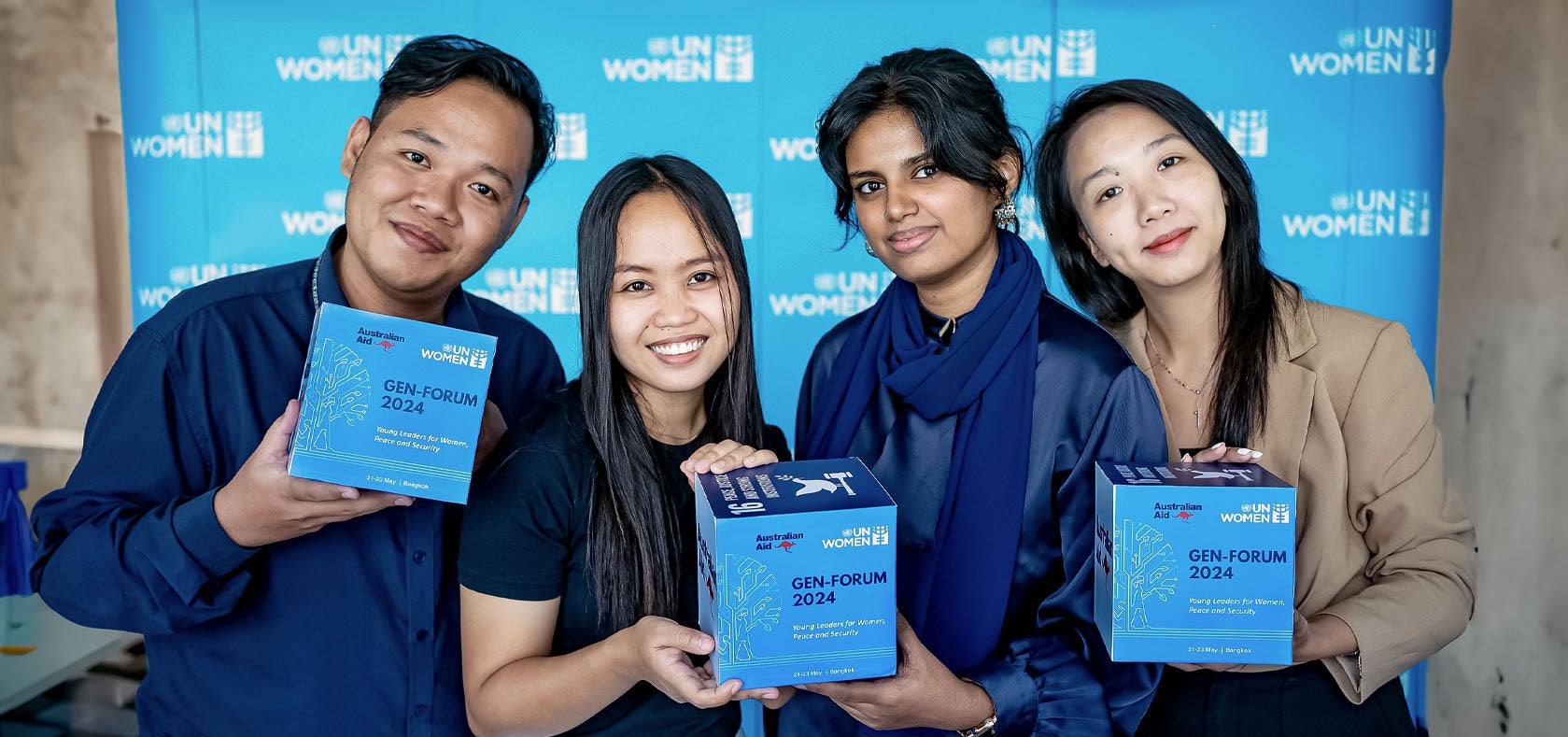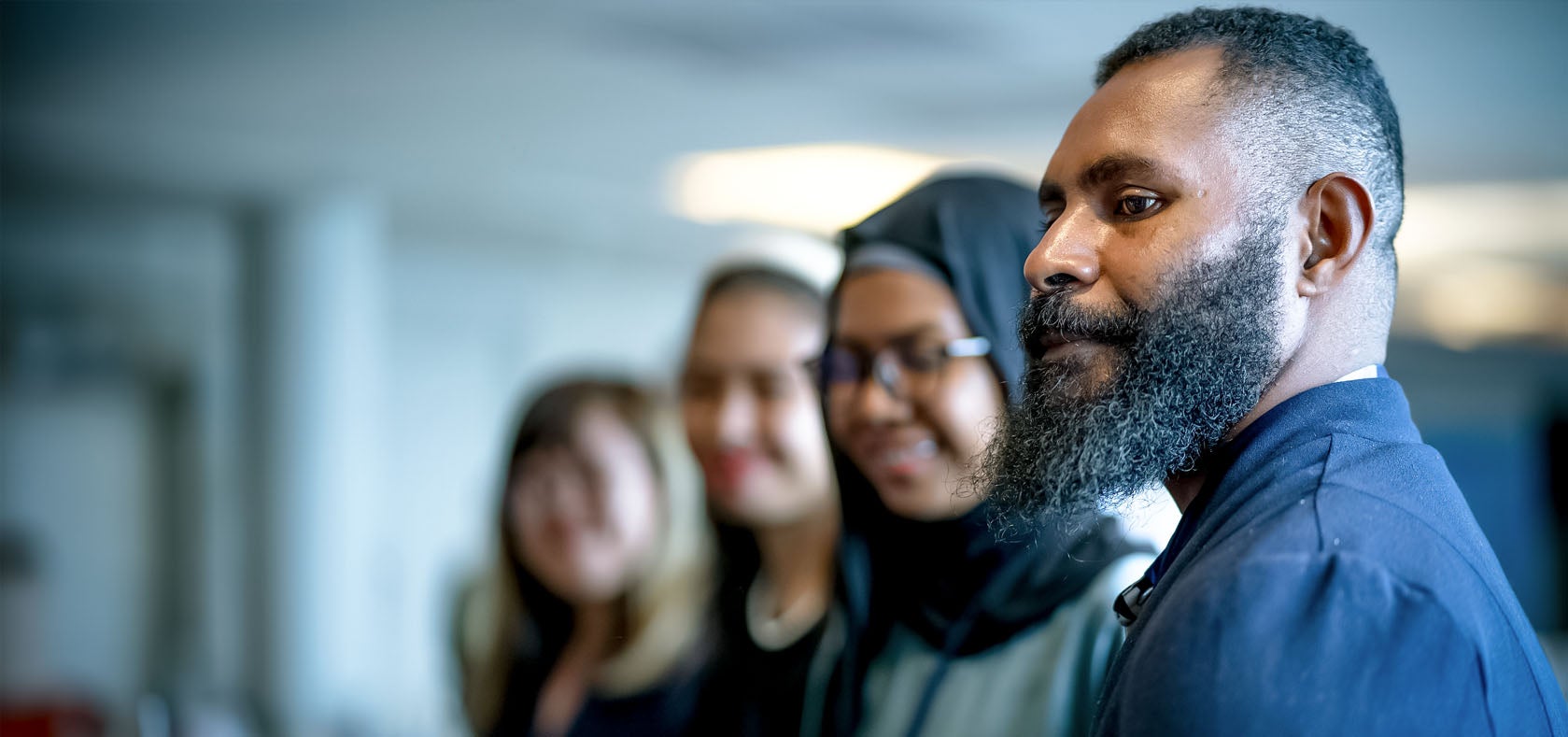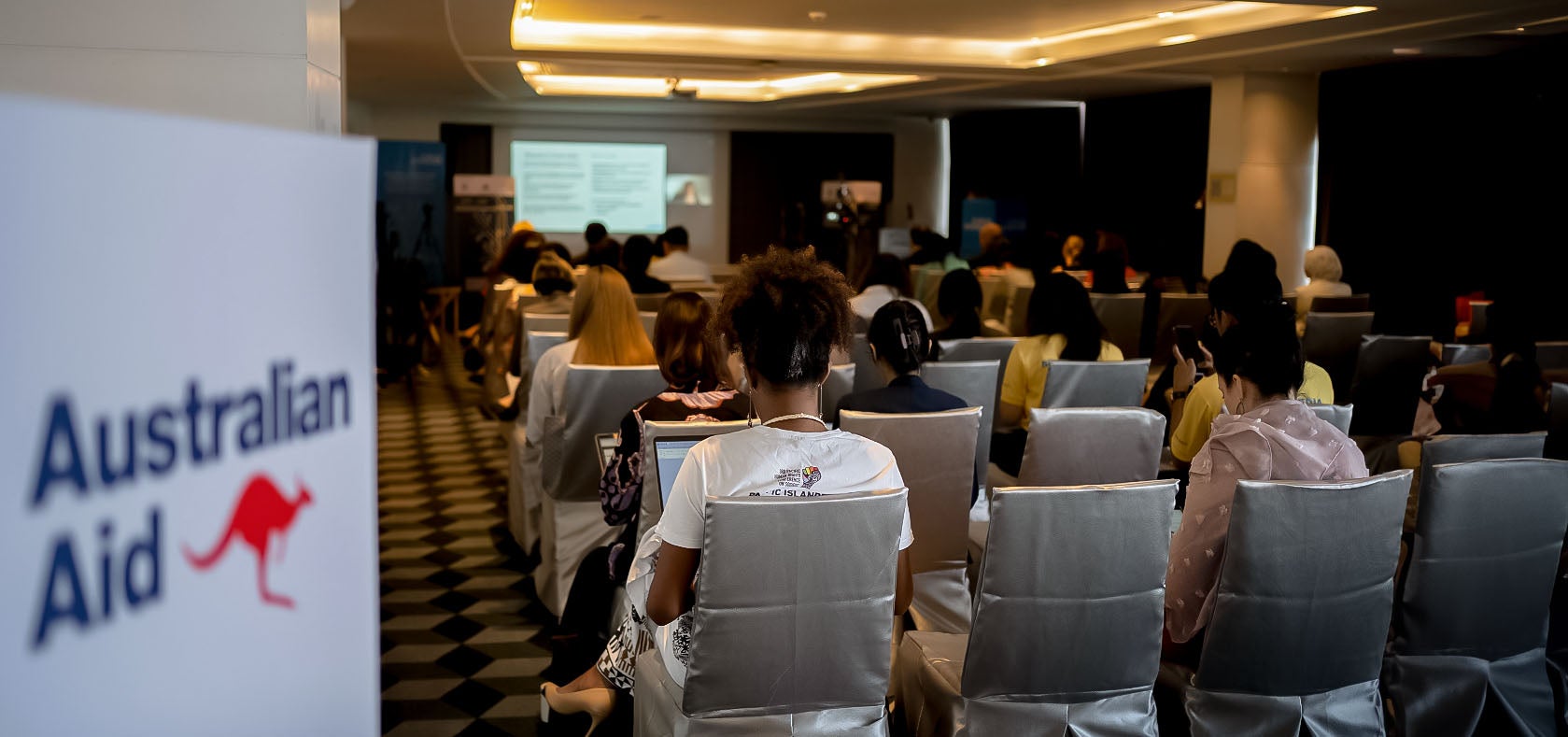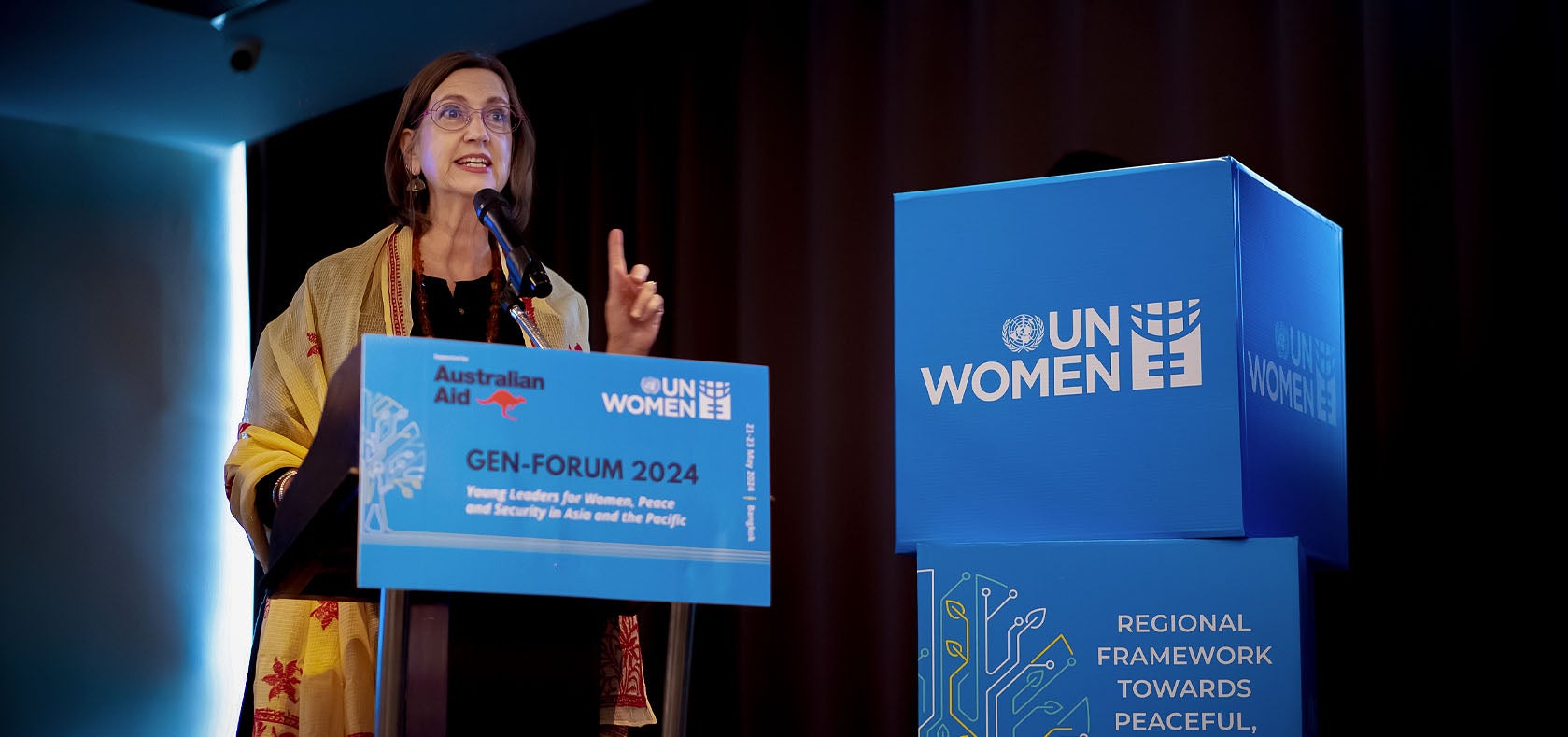Improving the security of young people in peacebuilding spaces, investing in peace education for pupils at an early age and encouraging more critical thinking on digital security for women were among the initial recommendations put forward by young leaders at a UN Women regional youth forum in Bangkok, Thailand, last week.
The Gen-Forum 2024: Young Leaders for Women, Peace and Security in Asia and the Pacific brought together a rising generation of women, peace and security (WPS) advocates from across Asia and the Pacific to examine regional peace and security challenges and to understand better new and emerging security issues.
“The challenges we face may be formidable, but the resolve and resilience of young women peacebuilders are equally robust. By harnessing the energy and innovation of the youth we unlock the potential for transformative change across the Asia Pacific region and indeed beyond,” Nyaradzayi Gumbonzvanda, Assistant Secretary-General and UN Women Deputy Executive Director, said via a video message.
The participants from 20 countries in Asia and the Pacific identified priority topics for discussion - ranging from cybersecurity, climate change and preventing violent extremism, to security in outer space, valuing traditional knowledge and issues related to intersectionality, including persons with disabilities and diverse gender identities.
Foremost was the participants’ message that young people must be actively recognised by governments and the general public as a major driving force for peacebuilding and positive change.
“We’ve forged new connections and shared our visions for a future where peace and security are inextricably linked with gender equality and youth leadership. Yet, we must also be critical of the persistent gaps and barriers that still exist,” said participant Elisa Shafiqah binti Shahrilnizamm, Head Advisor of Malaysian Youth Diplomacy.
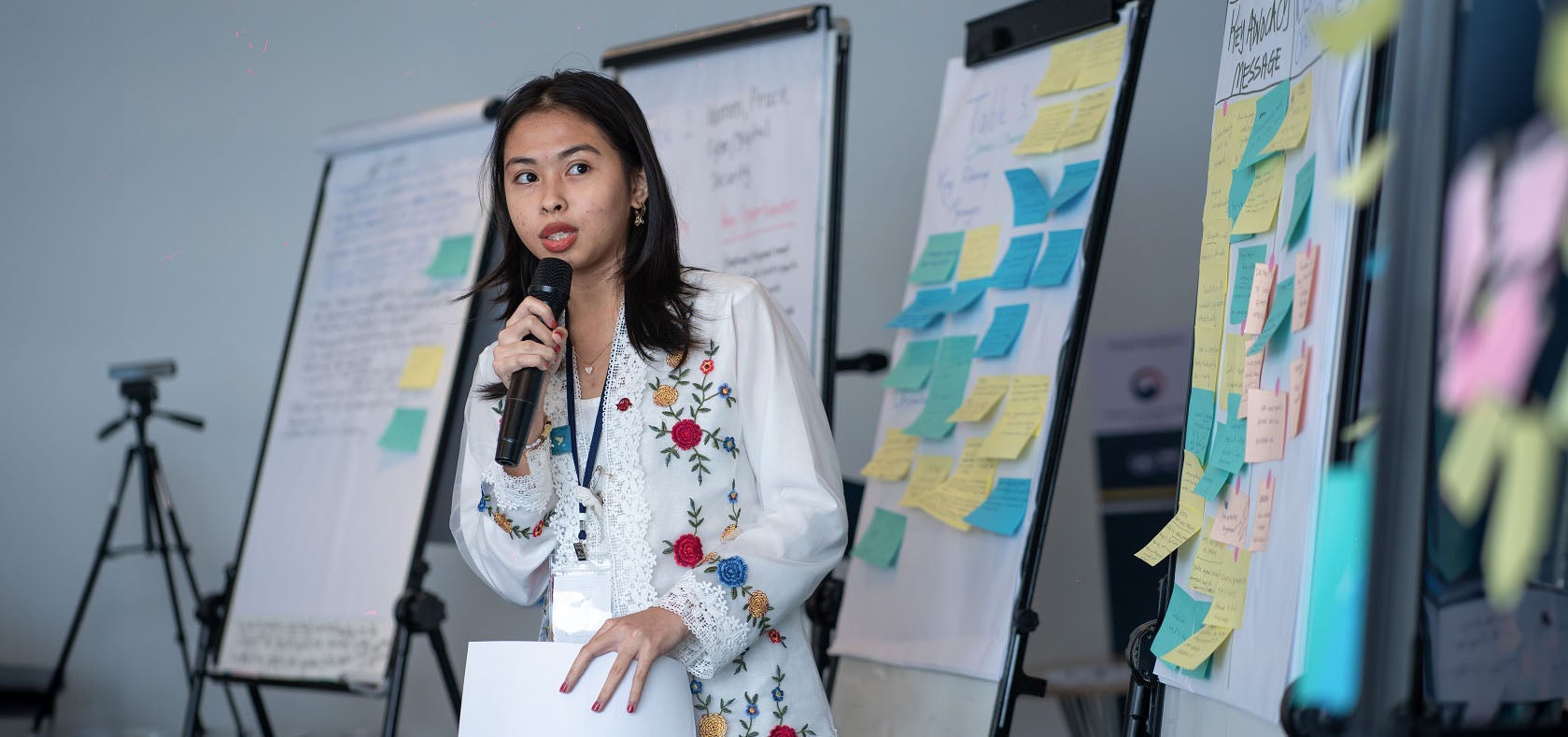
The young WPS champions agreed to co-create a Gen-Forum 2024 outcome document by mid-June that will contribute to global, regional and national processes on peacebuilding and sustaining peace, such as the Summit of the Future, the Peacebuilding Architecture Review and Beijing+30.
Importantly, their outcome document will also be disseminated via the participants’ own networks and localised to meet their diverse country contexts throughout the region.
UN Women organized the forum to implement the commitments under the Regional Framework Towards Peaceful, Inclusive Societies , in partnership with the Australian Government.
“Our collective commitment to gender equality and the WPS agenda is more urgent than ever, and we can't do this without the inclusion and leadership of young people. We know that young people like you are already leading in this space, bringing innovative solutions and inspiring change,” Australia’s Ambassador for Gender Equality, Ms Stephanie Copus-Campbell, said during the opening.
The forum objectives included identifying peace and security priorities of young women leaders and their allies, including young men and gender diverse advocates; fostering a shared understanding of the fundamental principles of promising approaches to advance the WPS agenda in the Asia-Pacific region, and charting a new vision ahead of the 25th anniversary of the WPS agenda in 2025.
“We think it’s important to recognize that one size doesn’t fit all when it comes to many of the development frameworks. It’s about really looking at context and what is the best approach to take,” said Tamani Rarama member of Fiji’s non-governmental organization DIVA for Equality.
The livestreamed opening included the launch of groundbreaking research by UN Women and the UN University Institute of Macau exploring the connections between artificial intelligence, digital security and the WPS agenda in South-East Asia.
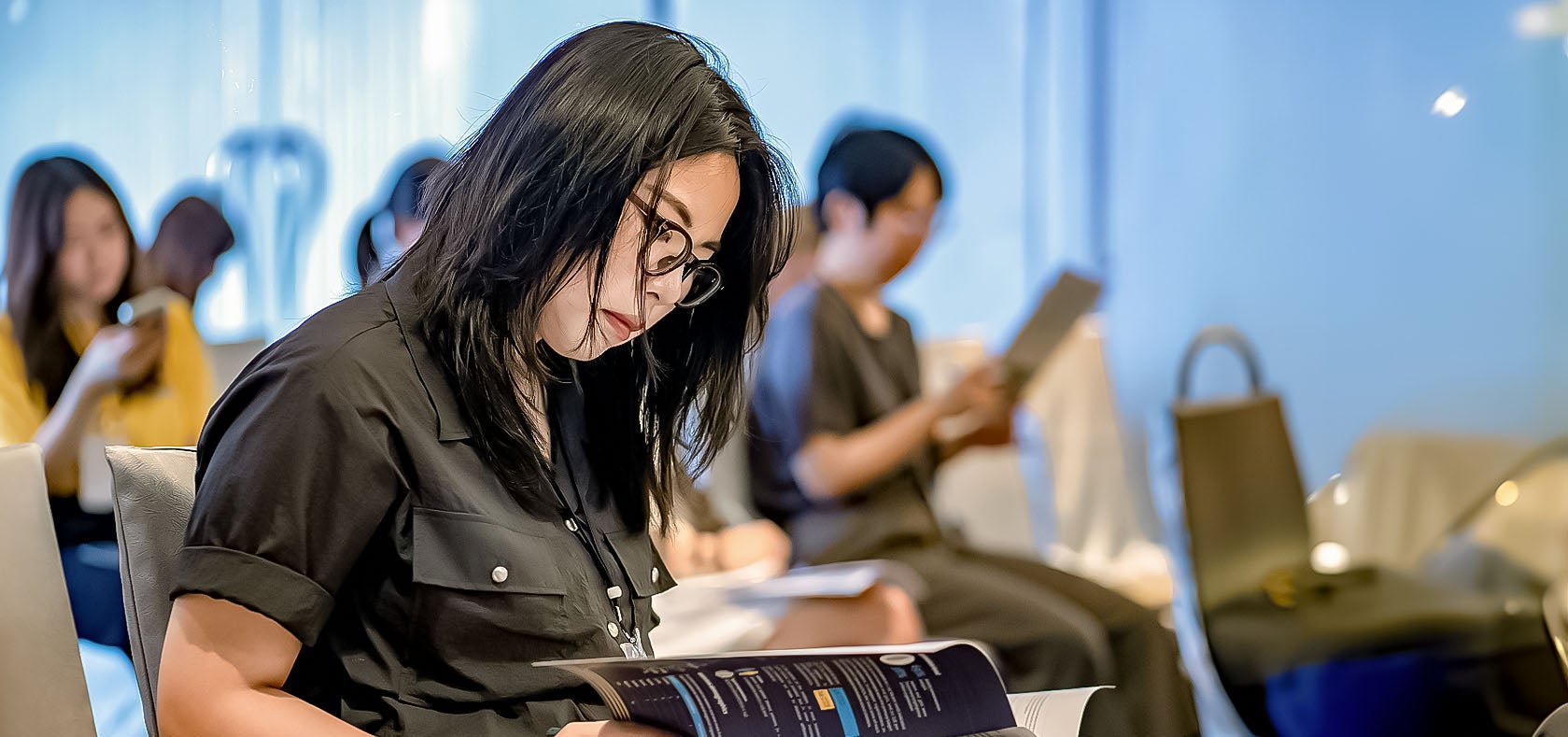
The participants also committed to continue their advocacy for youth perspectives to be heard on peace and security issues in their respective countries and regionally.
More information
- Gen-Forum 2024 event page
- Watch livestream replay of Gen-Forum 2024 opening session and research launch
- Download full research reports and research summaries:
- Cybersecurity Threats, Vulnerabilities and Resilience among Women Human Rights Defenders and Civil Society in South-East Asia
- Artificial Intelligence and the Women, Peace and Security Agenda in South-East Asia
